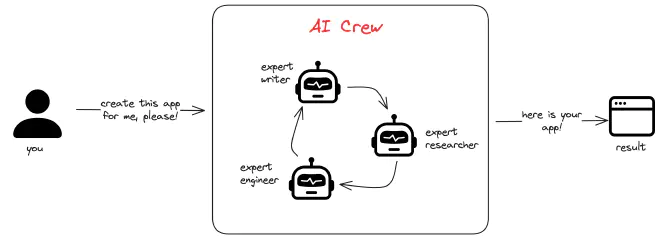The rise of quantum computing promises to revolutionize industries across the board, and the legal system is no exception. With its ability to perform complex calculations at speeds unimaginable to classical computers, quantum computing could redefine how legal professionals analyze data, manage cases, and deliver justice.
From improving legal research to enhancing cybersecurity in court systems, this technology holds the key to solving some of the biggest bottlenecks in law. But how exactly could this powerful innovation transform the centuries-old legal framework? Let’s explore the profound implications quantum computing may have on the legal sector.
Accelerating legal research and document analysis with quantum capabilities
Quantum computing could significantly reduce the time required to process and interpret massive volumes of legal documents. Legal professionals often deal with contracts, case law, statutes, and discovery documents—analyzing which takes weeks. Quantum algorithms could enable rapid pattern recognition, drastically reducing this timeframe. This efficiency can improve access to justice by cutting costs and freeing up human resources for more nuanced legal work. Furthermore, law firms and courts can automate routine legal tasks while maintaining accuracy and minimizing bias.
Enhancing legal forecasting and case outcome predictions through quantum simulations
Legal prediction models powered by AI are already helping law firms gauge the likelihood of winning a case. With quantum computing, these models could be exponentially more accurate. Quantum machines could simulate countless legal scenarios simultaneously, factoring in variables like precedent, judge history, jurisdiction, and argument patterns. Such capabilities would enable lawyers to strategize better, negotiate settlements more effectively, and provide clients with deeper insights into potential outcomes, ultimately leading to more data-driven decision-making in the legal world.
Reinforcing cybersecurity in legal data with quantum encryption technologies
The legal system handles vast amounts of sensitive information—confidential client data, evidence, and court records. Quantum computing brings new encryption techniques, such as quantum key distribution (QKD), which offers theoretically unbreakable data security. Law firms and judicial systems could use quantum cryptography to protect against cyberattacks, which are growing in frequency and sophistication. Ensuring secure communication and safeguarding sensitive legal data are critical in an era where digital breaches could compromise entire legal proceedings.
Transforming dispute resolution and arbitration through quantum-powered platforms
Alternative dispute resolution mechanisms, including arbitration and mediation, are ripe for transformation through quantum-enhanced platforms. These systems could process large datasets from similar past disputes and generate optimal negotiation paths, helping parties reach faster resolutions. Quantum-powered systems can also offer predictive models that suggest the fairest outcomes based on historical precedents and behavioral patterns, fostering more balanced decisions. This would make arbitration not only quicker but also more transparent and data-driven.
Enabling real-time legal compliance monitoring in corporate ecosystems
Quantum computing could be embedded in large organizations’ compliance frameworks to monitor activities in real-time. Quantum systems can evaluate enormous streams of transactions and communications against complex regulatory requirements, detecting anomalies or potential violations instantly. This helps companies stay compliant with evolving legal frameworks and mitigates risks of penalties. For regulators, it means faster enforcement and better tools to ensure legal adherence across global digital infrastructures.
Driving innovation in intellectual property law and patent analysis
The complexity of patent law, especially in technology and biotech sectors, makes intellectual property (IP) evaluation a prime candidate for quantum optimization. Quantum computing could assess patent applications against global databases to detect overlaps or infringements within seconds. This would improve accuracy in patent issuance and reduce litigation caused by unclear or disputed claims. Innovators, businesses, and IP attorneys could benefit from more precise assessments of patent strength, originality, and marketability.
Improving judicial decision support systems through high-performance quantum processing
Judges often rely on supporting research, precedent analysis, and data-driven assessments in their rulings. Quantum computing can elevate these judicial support systems by analyzing legal nuances across jurisdictions and precedents in parallel, offering deeper context. Quantum-enhanced tools could assist in crafting fairer rulings by considering broader datasets and potential consequences. While final decisions remain with human judges, the quality of inputs and available insights would vastly improve through quantum-enabled analysis.
Streamlining legal education and training through quantum-simulated environments
Training future lawyers may also evolve with quantum computing. By creating immersive, simulated legal environments powered by quantum simulations, law students can practice complex scenarios with dynamic legal outcomes. These simulations could adapt in real-time to user decisions, offering tailored feedback. Educational institutions could use quantum computing to analyze student progress and legal reasoning patterns and optimize course delivery, ultimately producing more adept legal professionals ready for modern challenges.
Frequently Asked Questions
What is quantum computing in simple terms?
Quantum computing uses quantum bits (qubits) that can represent multiple states simultaneously, allowing ultra-fast calculations beyond the capabilities of classical computers.
How can quantum computing improve the legal profession?
It can automate research, analyze legal documents faster, enhance cybersecurity, and support predictive legal modeling.
Is quantum computing currently being used in law?
While still in its early stages, experimental applications are underway in legal research, compliance monitoring, and IP analysis.
What are the benefits of quantum encryption for lawyers?
Quantum encryption, like QKD, provides virtually unbreakable security, which is essential for protecting confidential client and case data.
Will quantum computing replace lawyers?
No. Quantum computing will augment legal work by handling data-intensive tasks, allowing lawyers to focus on strategic and interpretative responsibilities.
How will it affect court systems and judges?
Quantum tools can provide judges with more comprehensive legal insights, improving decision-making without replacing human judgment.
Can it help with international law and global cases?
Yes. Quantum systems can process multi-jurisdictional laws and precedents efficiently, aiding in global legal analysis.
What challenges exist in implementing quantum computing in law?
Key challenges include high costs, lack of infrastructure, limited quantum literacy among legal professionals, and ethical considerations around automation.
Conclusion
Quantum computing is poised to transform the legal system by enhancing efficiency, security, and decision-making across all legal functions. Its impact will reshape how justice is delivered and practiced. As the technology matures, now is the time for legal professionals to prepare and embrace its powerful potential. Explore how your legal practice can adapt to a quantum-powered future.







